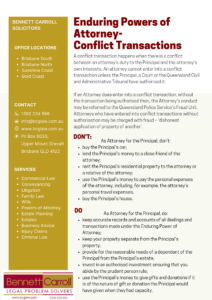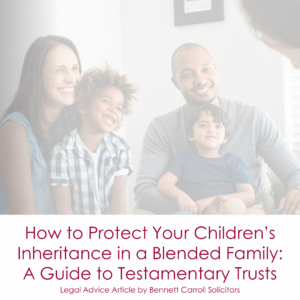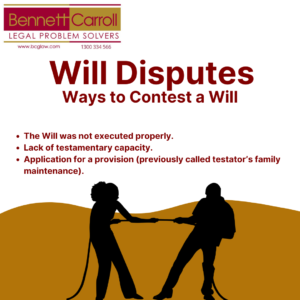When you die without a will in Queensland, also known as dying intestate, your estate is subject to intestacy laws, meaning the state decides how your assets are divided. These laws often result in unintended consequences, leaving your loved ones with unnecessary delays, legal fees, and disputes.
Here’s what happens if you die without a will and how you can avoid intestacy in Queensland.
When you die without a will, your estate follows intestacy laws. These laws vary by state, but the basic rules are similar. The court decides who gets your assets based on your closest relatives. Here’s a typical order of who inherits:
- Spouse: If you’re married, your spouse usually gets a large portion.
- Children: If you have kids, they may share the remaining assets.
- Parents and Siblings: If you have no spouse or children, your parents or siblings inherit.
- Extended Family: If none of the above exist, the court looks for other relatives.
- The State: If no relatives can be found, the estate goes to the Public trustee.
Spouse and Children
The exact division between spouse and children depends on state laws. In Queensland the estate is split between the spouse and children. This division can get complex if there are children from previous marriages.
No Spouse or Children
If you have no spouse or kids, your assets go to your parents or siblings. If they are not alive, it may go to nieces, nephews, or cousins. If no living relatives are found, the state claims your estate.
Guardianship for Minor Children
Without a will, the court decides who cares for your children. They will choose a legal guardian based on the best interests of the child. This may not match your wishes. A will lets you name a guardian, giving you control over this decision.
Estate Administration
A will usually names an executor to manage your estate. Without one, the court appoints someone, usually a close relative. The administrator must gather your assets, pay debts, and distribute what’s left. This can take time and cause delays in inheritance.
Tax Consequences
Dying without a will can affect taxes. A well-planned will may reduce estate taxes. Without one, your estate might pay more in taxes, reducing what your heirs receive.
Delays and Costs
The process may take longer when there’s no will. The court must investigate and determine who inherits. This can lead to delays and additional legal fees. A will helps speed up the process and reduces the cost.
Conflicts Among Family
Dying without a will can lead to family disputes. Relatives may disagree on who should inherit. Some family members may feel left out. A will allows you to be clear about your wishes and reduces potential conflict.
Avoiding Intestacy
The best way to avoid these issues is to create a will. A will allows you to choose who inherits your assets. You can also name a guardian for minor children and an executor to handle your estate. A will gives you control over your legacy and reduces uncertainty.
CONTACT US TODAY
Dying without a will can leave your family facing uncertainty, delays, and potential conflicts. The best way to avoid this is by creating a will that clearly outlines your wishes. At Bennett Carroll Solicitors, we offer expert legal advice on wills and estates, ensuring your loved ones are protected. Whether you’re in Brisbane, the Gold Coast, or the Sunshine Coast, our experienced solicitors can help you navigate the complexities of estate planning.

Don’t wait until it’s too late—call us today at 1300 334 566 to book an over the phone or in person consultation at one of our offices in South East Queensland. Protect your assets, your family, and your legacy with the help of our dedicated team.
See also:
Planning Your Legacy with the help of Bennett Carroll Solicitors: Wills, Estates, And Peace Of Mind
For other helpful resources on Queensland intestacy laws see also:
- Queensland Government: Review of the Succession Act 1981
- Public Trustee of Queensland: About deceased estates

Our experienced wills and estates lawyers are here to guide you through every step of estate planning. Whether you need to draft a will, appoint an executor, or manage intestate estate administration, we can help. Call our Brisbane, Gold Coast, or Sunshine Coast offices today to get expert legal advice tailored to your needs. Don’t leave your estate to chance—call Bennett Carroll Solicitors now and secure your family’s future.







